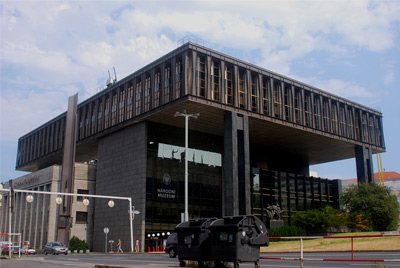 |
|||||
| contact I cv I reviews I catalog I works << back I next >> | |||||
|
live broadcast (2007-2011) installation / photo (Free copies, Retransmission timeout) and video (Live Broadcast (RARET, Gloria do Ribatejo 2010) , Live Broadcast (interview with Mario Portugal Faria, 2010 Lisboa) , Live Broadcast (film by Mario Portugal Faria)) |
|||||
| work+description exhibition view |
|||||
LIVE BROADCAST When I started to work on this research project, I couldn’t even presume that the question of liberty of the press and speech will be a current issue again in Hungary. The topic of my art/research work is the exploration of the historical traces of the cold war, the documentation of locations, that have lost of changed their meaning, and the photographic exposition of objects and public spaces that have no value in the present. The heritage of the cold war period is wedged into our present with countless unanswered questions; an intellectual and material heritage that is waiting to be re-evaluated; centers, "out-of-use" spaces and objects waiting to be wound up. In the past years (2007-2011) I focused on the history of Radio Free Europe because I’m interested in the interesting and most important situation of RFE in the cold war period of history and the restarted, reactivated mission in the world. I’m interested in their continuous work in the recent past and present. I could visit some important places from the recent past and present of RFE/RL. The role of the Radio Free Europe in the cold war, the periodical pause of making the radio program, than the restart of it in the recent past let us analyze such complex questions like the role of the radio in democracy, gradations in the communication of freedom, propaganda and free communication. In the autumn of 2007 I made a photo series documenting the process of discarding the book stock of the Radio Free Europe Library. OSA (Open Society Archives) inherited almost 100,000 volumes from the Radio Free Europe Library. The historically or professionally important part of the stock was transferred to the OSA and CEU libraries. In the summer of 2007 most of the book archive was devaluated and made available to the public for free. The thus transubstantiated, re- and devaluated, discarded books were publications on political and economic history of the cold war period. My photographs show the process of this re-evaluation, devaluation and liquidation. In 2008 I had the opportunity to work on another photo series in Glória de Ribatejo, Portugal, which still preserves the remains of the former Radio Free Europe's biggest European radio transmission station, and the traces of its dispersed objects. This base, has become a dead landscape, deserted by man. Its objects and buildings are the empty stage sets of recent past. The former American base is now an abandoned, nonfunctional, empty landscape that is waiting to be reused; an uninhabited city before demolition. In 2010 I could take many pictures in the former RFE/RL center in the old Parliament building in Prague. In 2009-2010 my next series were made in Washington and Prague, and was possible to continue and expand my work with the paths of daily life in the RFE. My series were include researching the locations of Radio Free Europe's contemporaneous broadcasts and the site of its founding, as well as other architectural spaces, sites of public memory, and its traces and remains. In 2010 I have shooting a video documentary recording with a 84 years-old technicians who was worked for forty years in the RARET. The forty years of the history of Radio Free Europe's transmission station in Portugal, relying on personal memory. The character in the film, the bearer of memories, is an ex-technician from the base, Portugal's oldest amateur radio expert. I have some new video stills about the area of the base where I could continue my art-work two years later. Csoszó Gabriella Special thanks to: Mario Portugal Faria, Miguel Caissotti, Municipal de Lisboa, Municipal de Gloria do Ribatejo, Futura, Studio of Young Artists’ Association, International Visegrad Fund, RFE Washington, RFE Prague, György Orbán |
|||||
2010 © csoszó
